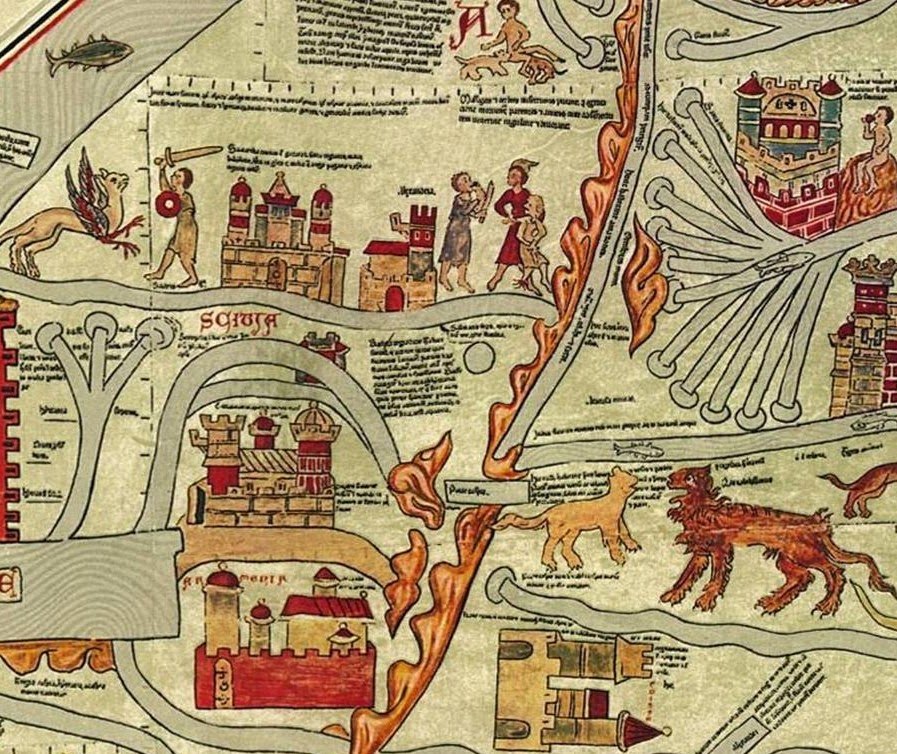Perhaps the most well known epic that has William as the hero is the Chanson de Guillaume (The Song of William). It is one of the oldest chansons and was the founding poem of the entire William of Orange cycle. It is likely that it was the popularity of the central hero William that inspired further song-tales of him and his family.
 |
| Figure 1. Abbey of Saint-Guilhem-le-Désert |
 |
| Figure 2. William of Orange? |
I'll end this post with a small extract from the Chanson de Guillaume, which in my opinion is one of the finest of the Old French epics. This extract has Count William bravely arriving to the battlefield with back-up; persevering with the fight against the odds (a key theme throughout the poem):
The Count set off with Sir Girart and leading
Knights fully armed and thirty thousand liegemen
To Archamp field and Desramed the Heathen;
They journeyed through the cold night air, unspeaking
Till break of dawn and light of day appearing;
When they arrived at Archamp on the seaboard,
The Moor had won; the French were fled or beaten;
(. . .)
A league or more they'd ridden from the beaches,
When William the Count rode up to meet them
With well-armed knights and thirty thousand liegemen,
One half of whom were very keen to greet them
With blows of iron to show their strength of feeling!
They cried: "Mountjoy!" and moved to strike them fiercely;
Those Pagan lords were helpless to receive them:
They had no arms to counter blows or deal them;
They turned in flight towards the shore, retreating
Inside their ships and sundry other sea-craft;
They seized their arms and roused themselves to wield them.
Sources Used
- Figure 2 is from William P. Gerritsen and Anthony G. van Melle (eds.), trans. by Tanis Guest, A Dictionary of Medieval Heroes: Characters in medieval Narrative Traditions and Their Afterlife in Literature, Theatre and the Visual Arts (The Boydell Press: Woodbridge, 2008), p. 134; see also pp. 132-6.
- The extract of Chanson de Guillaume is from Michael Newth (trans.), Heroes of the French Epic:Translations from the Chansons de Geste (The Boydell Press: Woodbridge, 2005), p. 77; see also pp. 31-142.
- ‘The Coronation of Louis’, in Joan M. Ferrante (trans.), Guillaume d’Orange: Four Twelfth-Century Epics (Columbia University Press: Chichester, 2001), pp. 63-139.
- ‘The Song of William’, trans. by Muir, Lynette, in Glanville Price (ed.), William, Count of Orange: Four Old French Epics (J.M.Dent & Sons Ltd.: 1975), pp. 131-203.





